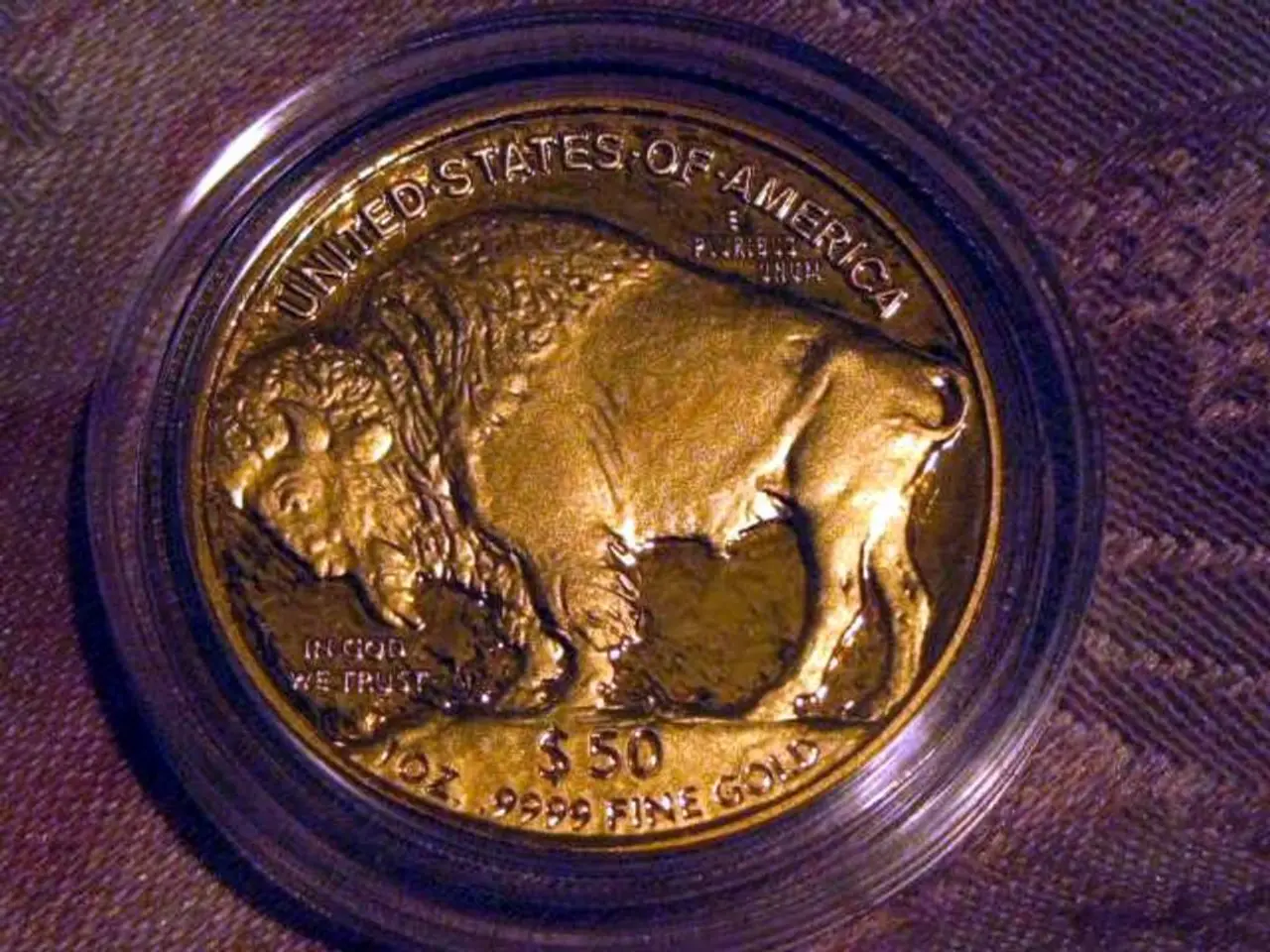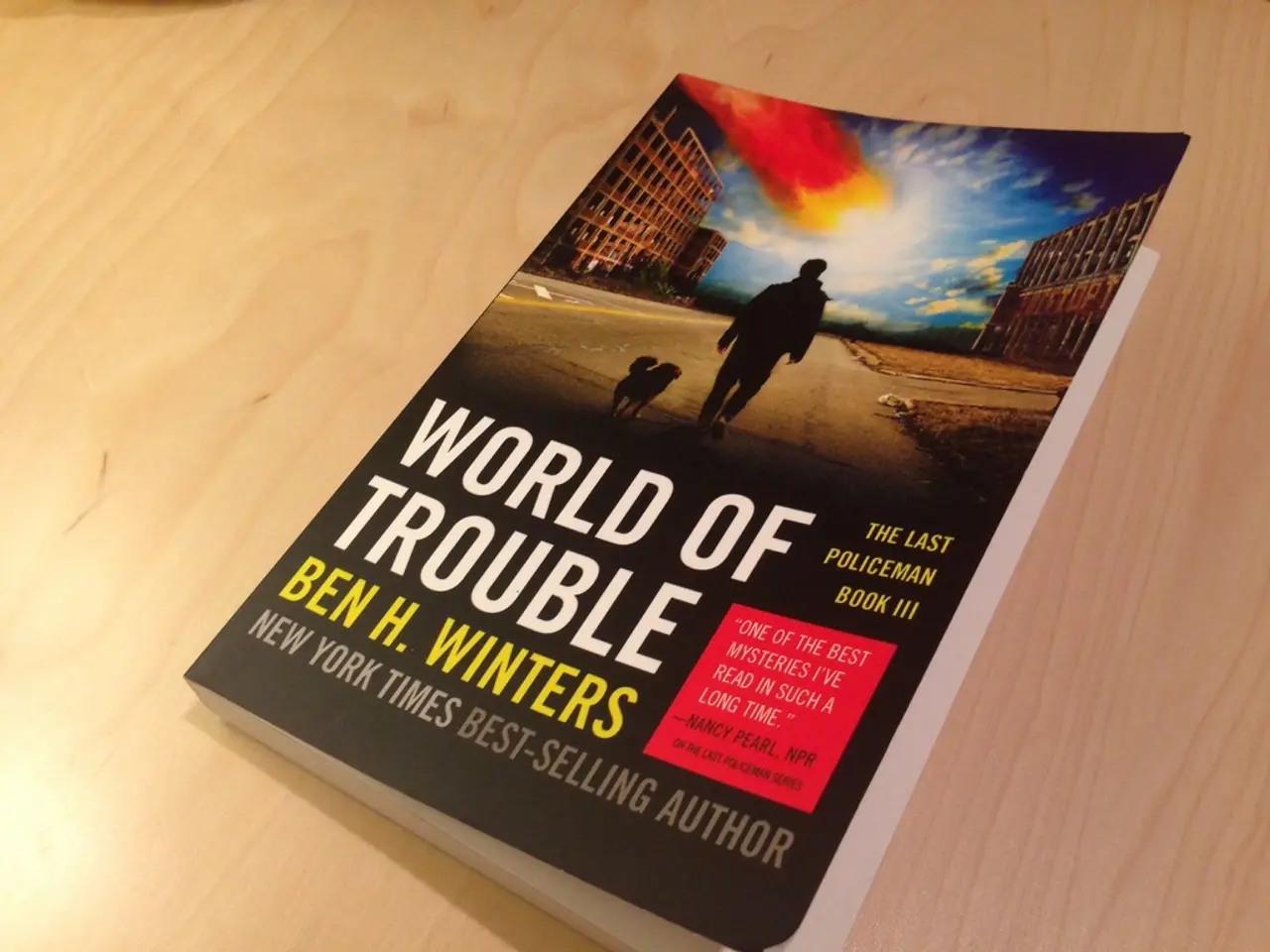U.S. Federal Reserve Decision Clouded by Trump's Tariff Policies - U.S. Import Taxes, Imposed by Trump, Take Center Stage in Fed Discussions
Yo, here's the skinny on the current fuss between POTUS, Donald Trump, and the Federal Reserve (Fed). The big question on everyone's mind is, how will Trump's tariffs affect the US economy? Let me break it down for ya!
Trump's Soaring Tariffs: A Disaster in the Making?
Trump's tariffs have the Fed worried. While the Fed wants to keep inflation low and the labor market robust, Trump sees a booming economy with non-existent price hikes. But alas, Fed Chair Jerome Powell wasn't having any of it.
"You can bet your boots that inflation will shoot up thanks to tariffs," Powell warned, "and consumers will be hit hard."
The impact of tariffs varies, but the consensus is clear: they'll raise prices and slow growth. And higher tariffs can push prices even more, as Powell explains, "If they're jacked up high enough, you can bet your bottom dollar that consumers will pay more, and the economy will suffer."
Will the Fed Stand Its Ground Against Trump's Pressure?
Trump's been demanding lower interest rates to give the economy a boost, but the Fed sees things differently. They kept their policy rate at a high 4.25-4.5% while Trumps roars for easy credit. Uncertainty about future economic developments keeps the Fed from changing its policies.
The Tariffs' Toll on America
The Fed now expects slower economic growth this year, predicting a growth rate of 1.4%. That's slower than earlier projections of 1.7% and a significant setback. The Fed also anticipates an annual inflation rate of 3.0%—higher than the earlier forecast of 2.7%.
Trump's been imposing and threatening high tariffs on various imports since taking office, making goodies more expensive. And it seems the Fed's correct in its concerns: higher tariffs mean higher prices and a sluggish economy.
Trump's Cowboy Economics: Not a Good Fit for the Fed
Though the Fed's independence is guaranteed by law, Mr. Trump keeps voicing his demands for lower interest rates. He even attacks Fed Chair Jerome Powell, calling him all sorts of names. His unrelenting pressure on the Fed raises questions about what drives his economic policies—Investigations? I uh, mean elections!
A Dreadful Economic Predicament
As the Fed navigates these challenges, it faces a tough decision regarding interest rates: raise them to combat rising inflation or lower them to stimulate a struggling economy. For now, the Fed remains steadfast and will watch the economic scene unfold before making any moves.
Now that you're clued in, stay vigilant and keep your eyes peeled. The future's uncertain, but with the right info, we can make sense of whatever happens. Word.
Key Players
- Donald Trump
- Federal Reserve (Fed)
- Jerome Powell
- Inflation
- Central bank
- US economy
- US Federal Reserve System
- Republican
- Labor market
- Interest rate
Insights
- The tariffs' inflationary effect is expected to be short-lived, primarily due to one-time price increases from tariffs on imports.
- Tariffs are estimated to weigh on overall economic activity and reduce economic growth, leading to lost jobs and a shrinking capital stock.
- Despite higher federal revenue from tariffs, their costs to the broader economy, including reduced growth, increased inflation, and job losses, make the tariffs a less-than-ideal solution to boosting income.
- The Fed faces a complex dilemma: raising interest rates to halt inflation could stifle economic growth, while lowering them to stimulate growth might fuel inflation. The Fed's decision will depend on future economic and labor market developments.
EC countries might face similar challenges as the US economy due to potential repercussions from tariffs on business and employment policies. The Fed's battle against Trump's tariffs highlights the tension between maintaining low inflation, a robust labor market, and enhancing economic growth, issues that are also pertinent in European Union countries.
Finance, politics, and general news outlets should closely monitor the effects of tariffs on employment policies in both the US and EC countries, given their potential impact on business and economic growth. As Trump's tariffs increase prices and slow growth in the US, similar measures in EC countries could lead to similar consequences, raising questions about employment stability and overall economic well-being.






